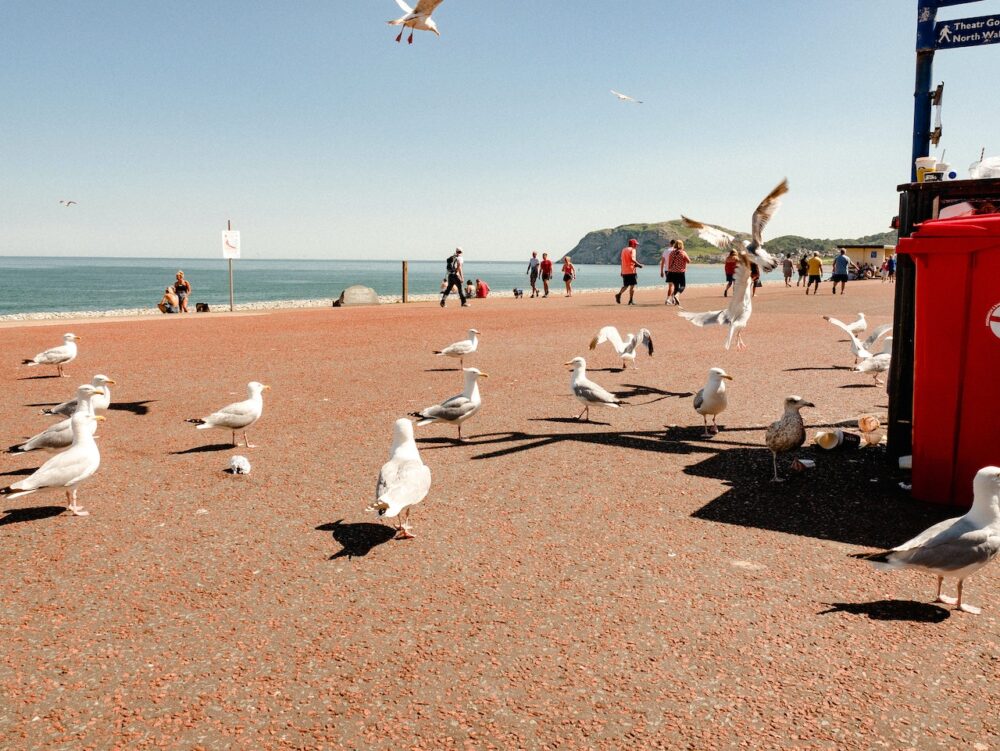Welsh concern as Avian Influenza is on the rise again

Across continental Europe, poultry flocks both large and small are being struck down with deadly avian influenza in ever-increasing numbers. Flu seasons, once clearly distinct from each other, now seem to blend from one wave to the next, not giving individual farmers respite. Farmers on the British Isles are not immune from this scourge, sadly, and 2023 has seen an alarmingly sharp rise in cases in Scotland. Now, this may seem reassuringly distant from our Welsh shores but unfortunately this is not the case. Due to the wide range of migratory birds that fly between Europe and Wales each year, it is impossible for Welsh poultry farmers to isolate themselves from this avian disaster. The scale of the problem led Wales’s Climate Change Minister, Julie James MS, to describe the scale of black-headed gulls found dead as a result of avian influenza as ‘heart-wrenching’ and to plead with the public to report all sightings of dead sea birds to the authorities whilst ensuring that they- or their dogs- did not pick up or touch dead or visibly sick sea birds.
Sea birds are of particular concern because, whilst already infected with the virus, their spread is impossible to control and they nest in close proximity to other, domesticated birds. Whilst reliable numbers can understandably be difficult to ascertain, by the end of May this year, over 1,500 black-headed gulls were believed to have succumbed to H5N1 at Marsh Lane Nature Reserve in the West Midlands, alone. Once the disease becomes prevalent, the mortality rate for new chicks is devastating, as is the survivability rate for fledglings.
At stake in this viral war is not just the loss of precious biodiversity in sea bird colonies, but also the inevitable spread to, and amongst, poultry farms. Wild birds are the primary source of infection for domestic birds of Highly Pathogenic Avian Influenza (HPAI), making the scale of mortality amongst Britain’s seabird colonies a huge cause of concern for the nation’s poultry farmers and backyard keepers. Across the Netherlands, Germany, Russia and Scandinavia, the number of confirmed HPAI cases in domestic poultry farms has rocketed with France being especially badly affected. There are even worrying signs that the disease is developing the ability to spread cross-species, with a confirmed outbreak at some of Finland’s highly controversial fur farms.
Given the severity of the situation, the need for the tightest biosecurity measures for the national flock is greater than ever. Everything from preventing the introduction and spread of the harmful pathogens into a property, to safely dealing with outbreaks when they occur falls under the umbrella of biosecurity. Specialist UK companies like Livetec are the experts in visiting farms and helping farmers audit their biosecurity measures: identifying potential entry points for the disease and putting in place mitigating protocols to provide the highest level of defence. With masses of experience helping farmers survive the dangers of avian influenza outbreaks and better preparing them for future threats, Livetec’s unrivalled knowledge can help the nation’s poultry keeper’s protect themselves today against the threats of tomorrow.




